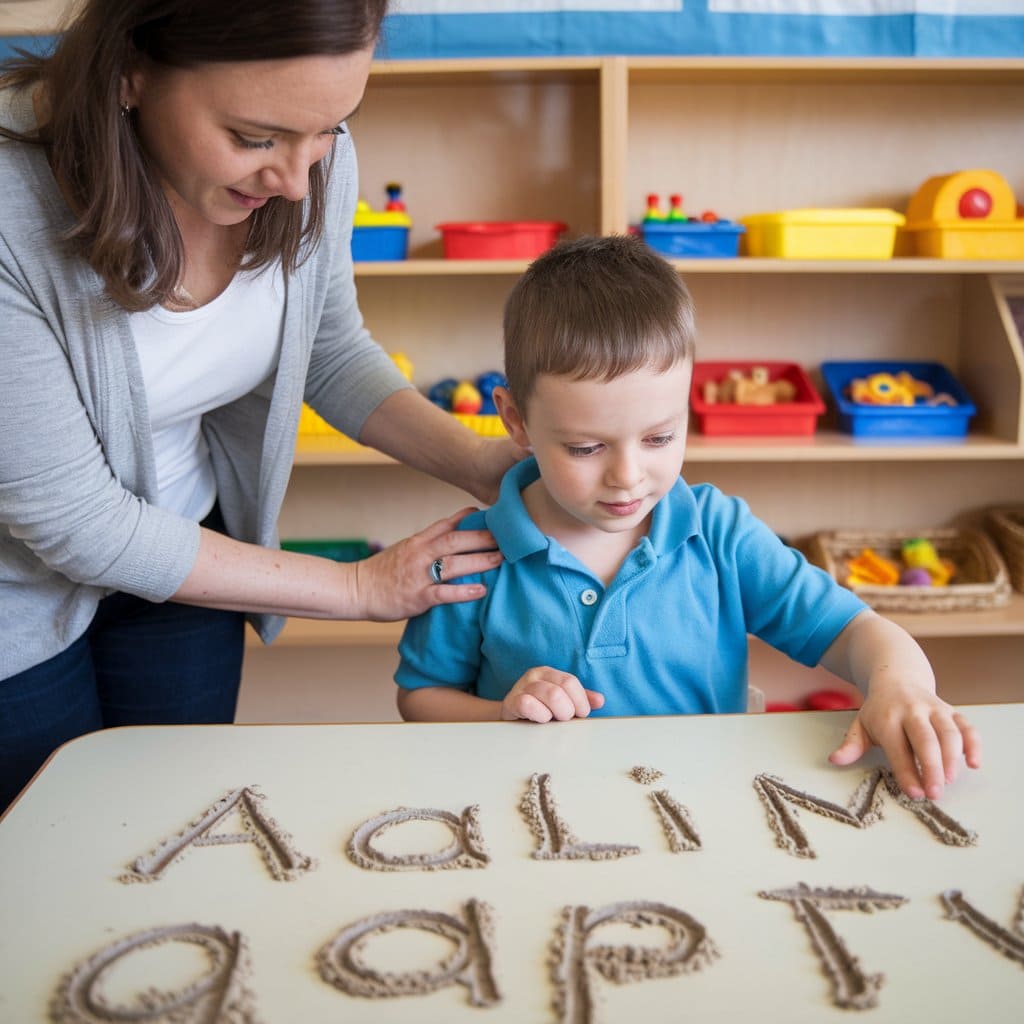Child Development and Education
H1: Introduction to Child Development and Education
Child development is an intricate journey that every child goes through, filled with milestones that shape their personality, intelligence, and emotional well-being. Education plays a critical role in this process, as it provides the tools for cognitive, social, and emotional growth. Understanding the stages of child development and how education intersects with them is vital for parents, educators, and society as a whole.
Children do not all grow at the same pace or in the same way, but knowing the general phases they pass through can help tailor educational approaches to fit their needs. In this article, we’ll explore the essential stages of child development and the key role education plays in shaping the future of young learners.
H2: Key Stages of Child Development
Child development can be broadly divided into four major stages: infancy, early childhood, middle childhood, and adolescence. Each stage is marked by significant cognitive, emotional, and social transformations.
H3: Infancy (0-2 years): The Foundation Stage
Infancy is a crucial time when babies experience rapid physical and mental growth. During this period, children begin to form emotional attachments with their caregivers and make sense of the world around them.
H4: Cognitive Development
Infants develop cognitive abilities like recognizing faces, responding to sounds, and exploring their environment. By the age of two, they begin to understand object permanence—the idea that objects continue to exist even when they are not visible.
H4: Social and Emotional Development
In these early years, children learn to express their emotions and develop the first seeds of social interaction. Smiling, cooing, and babbling are some of the first social behaviors that infants display. This lays the foundation for future social interactions.
H3: Early Childhood (3-6 years): Developing Independence
This is the age of growing independence and curiosity. Children in this stage are highly energetic, constantly exploring their environment, asking questions, and testing boundaries.
H4: Language and Communication Skills
Children rapidly acquire language during early childhood. They learn to speak in full sentences, understand instructions, and hold basic conversations. This ability plays a vital role in their educational progress as they learn to read and write.
H4: Emotional Self-Regulation
Learning to control impulses and understand feelings is another significant developmental milestone. This period helps children develop patience and the ability to interact positively with peers.
H3: Middle Childhood (7-11 years): The Age of Exploration
In middle childhood, children start to explore beyond their family and home environment. School becomes the focal point of their lives, where they develop cognitive and social skills that prepare them for adolescence.
H4: Academic Skills and Logical Thinking
During this phase, logical thinking and problem-solving skills blossom. Children improve their reading, writing, and mathematical abilities. They also start to think more critically and understand cause-and-effect relationships.
H4: Peer Relationships and Social Dynamics
Socially, children become more aware of peer groups and friendships, which influence their emotional and moral development. They learn collaboration, teamwork, and conflict resolution through interactions with friends and classmates.
H3: Adolescence (12-18 years): Shaping Identity
Adolescence is characterized by significant changes in identity, thinking patterns, and emotional development. Teenagers begin to think more abstractly, question authority, and form their own value systems.
H4: Critical Thinking and Abstract Reasoning
This is when adolescents start honing their critical thinking skills. They engage in more complex reasoning, philosophical thinking, and self-reflection. These skills are critical in helping them navigate academic challenges.
H4: Emotional Maturity and Identity Formation
Adolescence is a time of emotional turbulence. Teens grapple with self-identity, relationships, and emotional regulation. Education plays a significant role in helping them shape their values and understand their emotions better.
H2: The Interconnection Between Development and Education
The growth of a child is intricately connected to their educational experiences. Education is more than just teaching facts; it’s about nurturing a well-rounded individual capable of thinking critically, empathizing with others, and contributing to society.
H3: How Education Supports Development
Through structured learning, children are encouraged to explore new ideas, think creatively, and solve problems. Education also fosters emotional and social development by teaching children how to communicate, collaborate, and respect different viewpoints.
H4: The Role of Play in Learning and Development
Play is an essential aspect of learning, especially in the early years. It fosters creativity, allows children to experiment with social roles, and helps in cognitive development through problem-solving and exploration.
H4: Importance of a Stimulating Learning Environment
A stimulating environment, filled with opportunities for discovery, helps children engage actively in learning. Classrooms that integrate visuals, hands-on activities, and interactive technology can enhance focus and foster enthusiasm for learning.
H2: Early Childhood Education
The early years are the most formative in a child’s life, and the education they receive during this period sets the stage for their future learning experiences.
H3: The Value of Preschool Education
Preschool helps children develop essential skills like cooperation, listening, and problem-solving. Early exposure to structured educational settings prepares them for the more rigorous academic expectations of elementary school.
H3: Role of Teachers in Early Childhood Development
Teachers play an integral part in shaping young minds. They provide the guidance and support children need to navigate social dynamics, enhance their cognitive abilities, and foster emotional resilience.
H2: Role of Family and Community in Child Development
A child’s development is not just influenced by what happens in the classroom. The family and community play a pivotal role in shaping educational outcomes and emotional well-being.
H3: Parental Involvement in Education
Active parental involvement in education improves academic performance and builds stronger emotional bonds. Parents who participate in school activities or monitor homework encourage their children to develop a positive attitude toward learning.
H3: The Impact of Parenting Styles on Education
Different parenting styles—authoritative, permissive, or authoritarian—can influence how children approach learning. Authoritative parents, for instance, tend to encourage independence while setting clear boundaries, which often leads to higher academic achievement.
H2: Addressing Challenges in Child Development
Children may face several challenges during their development, ranging from learning disabilities to social and emotional struggles.
H3: Learning Disabilities and Early Intervention
Early detection of learning disabilities is key to providing the necessary interventions. Children with conditions like dyslexia or ADHD can benefit from specialized teaching methods and classroom accommodations.
H3: Special Education Needs
Inclusive education, where children with special needs learn alongside their peers, is essential for promoting social integration and emotional growth. Educators, parents, and specialists must work together to provide individualized support for these children.
H2: Technology and Child Development
In today’s digital age, technology plays a significant role in education, but it’s important to strike a balance between screen time and real-world interactions.
H3: Benefits and Drawbacks of Technology in Education
Educational apps and digital learning platforms provide engaging ways for children to learn. However, excessive screen time can hinder physical activity and social development.
H2: The Role of Outdoor Play in Development
Outdoor play encourages physical activity, enhances creativity, and improves social skills. It allows children to explore their natural surroundings, which fosters curiosity and problem-solving abilities.
H2: The Importance of Emotional Intelligence in Education
Emotional intelligence (EQ) is as crucial as academic intelligence. Teaching children how to understand and regulate their emotions leads to better relationships, improved academic outcomes, and greater resilience.
H2: The Future of Child Development and Education
As education systems evolve, there’s an increasing focus on STEAM subjects—Science, Technology, Engineering, Arts, and Mathematics—to prepare children for the challenges of tomorrow’s world. Embracing new educational trends while preserving core developmental needs will be key to nurturing future generations.
H1: Conclusion
Child development and education are deeply intertwined, with each influencing the other. Understanding the stages of development and providing appropriate educational experiences at each phase is essential for raising well-rounded, successful individuals. By fostering both cognitive and emotional growth, we can help children reach their full potential and prepare them for the complex world ahead.
FAQs
- What are the key stages of child development?
- The key stages are infancy (0-2 years), early childhood (3-6 years), middle childhood (7-11 years), and adolescence (12-18 years).
- How does education influence cognitive development in children?
- Education supports cognitive growth by stimulating critical thinking, problem-solving, and logical reasoning through structured learning.
- Why is early childhood education important for lifelong learning?
- Early childhood education sets the foundation for future learning by teaching essential skills like communication, socialization, and emotional regulation.
- What is the role of parents in their child’s educational journey?
- Parents play a crucial role by fostering a supportive home environment, participating in school activities, and encouraging a love for learning.
- How can emotional intelligence be nurtured in children?
- Emotional intelligence can be nurtured through open communication, teaching empathy, and helping children identify and manage their emotions effectively.




